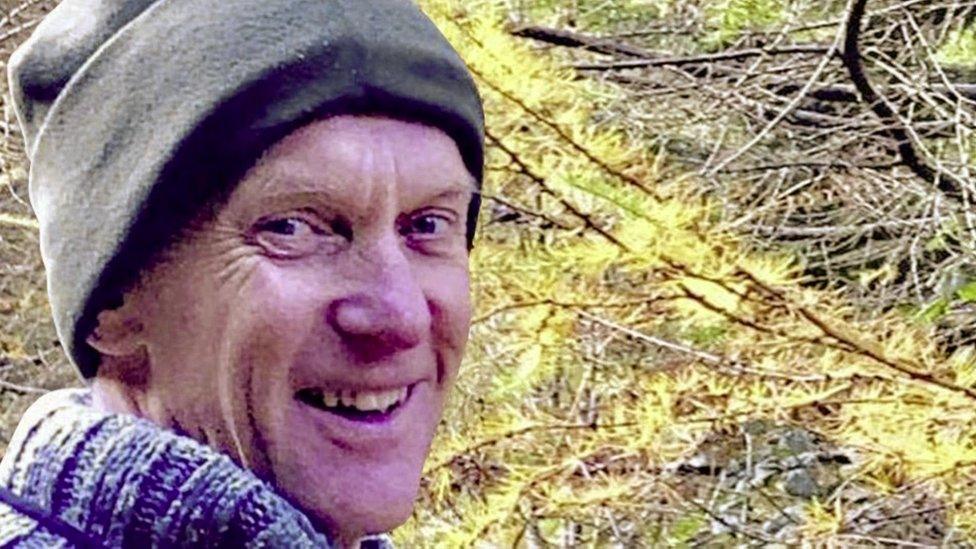Dr Michael Watt: Neurology patient recall report published
- Published

Neurology is the treatment of brain conditions, including MS, Parkinson's, stroke and motor neurone disease
A report into the recall of neurology patients has found 68% had a diagnosis that was considered to be secure.
In 2018, about 3,000 patients were recalled as investigations were carried out into the work of neurologist Dr Michael Watt at Belfast's Royal Victoria Hospital.
He was suspended amid concerns over possible misdiagnoses.
Neurology is the treatment of brain conditions, including MS, Parkinson's, stroke and motor neurone disease.
Dr Watt worked as a neurologist at the RVH.
Last year thousands of his patients were asked to come for a fresh assessment after concerns were raised about his care.
The Department of Health report, published on Thursday, covers 2,952 patients assessed by the reviewing clinicians.

Dr Michael Watt worked at the Royal Victoria Hospital as a neurologist
It found that 2,006 people had a secure diagnosis, while 617 had a diagnosis that was considered not to be secure.
For 329 patients "there was uncertainty in respect of whether the previous diagnosis was secure".
However, the department said an unsecure diagnosis did not automatically equate to a misdiagnosis.
The report was meant to be published earlier in the year, but "highly sensitive unforeseen circumstances" delayed it.
The Department of Health has said sorry for the delay and any additional concerns.
Both it and the Belfast Trust have also apologised to affected patients.
They said "it's highly regrettable that one person should have to go through this experience, let alone the large numbers that have been involved".
'Sincere sympathy'
In a statement sent to the BBC in November, Dr Watt offered his "sincere sympathy" to those affected.
"Patient care has always been of the utmost importance to me and the key focus throughout my career," he said.
"I have always sought to act in the best interests of my patients.
"Current investigations have highlighted concerns over the security of a number of my patients' diagnoses. I recognise the considerable distress these events have caused and I can only express my sincere sympathy to any of my patients affected as a result."
- Published24 June 2019

- Published4 January 2019

- Published30 October 2018
